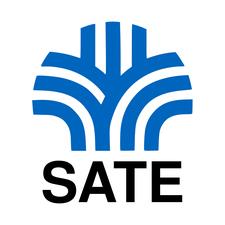Many thanks to Susan Brownlie, who has put together this helpful resource document for those interested in following up on the Using Holocaust Fiction in the Classroom webinar presented by Dr Paula Cowan and Professor Henry Maitles, University of the West of Scotland, in association with SATE, on 19th of August, 2020. You can view the webinar here: https://www.youtube.com/watch?v=ddgJwZkQQNQ
Resource List
Webinar References: Academic Research and Pedagogical Guidance
- Cowan, P. & Maitles, H. (2017) Understanding and Teaching Holocaust Education, London: Sage.
- Doherty, R. (2019) Only half of adults know what antisemitism means, Jewish Chronicle, 15 March, p.1.
- R. (2007) Boyne’s Dangerous Tale, Jewish Chronicle, 23 March, p.53
- Eckmann,M., Stevick, D, & Ambrosewicz-Jacobs, J.(2016) Research in Teaching and Learning about the Holocaust: A Dialogue Beyond Borders, Berlin: Metropol.
- Holocaust Educational Trust Teaching Guides (Primary, English and Drama)
https://www.het.org.uk/images/downloads/Primary/A_Guide_for_Primary_School_Teachers.pdf
(contains a recommended reading list and useful guidance on The Boy in the Striped Pyjamas)
https://www.het.org.uk/images/downloads/Resources/Teaching_the_Holocaust_in_English.pdf
(contains a recommended reading list for different age groups and a copy of David Cesarani’s Literary Review article from 2008 on The Boy in the Striped Pyjamas)
https://www.het.org.uk/images/downloads/Resources/Teaching_the_Holocaust_in_Drama.pdf
- IHRA (2016) Working Definition of Antisemitism,
https://www.holocaustremembrance.com/working-definition-antisemitismAbout
- Gilbert, R. (2010) Grasping the Unimaginable: Recent Holocaust Novels for Children by Morris Gleitzman and John Boyne, Children’s Literature in Education, 41:355-366.
- Gray, M. (2014) The Boy in the Striped Pyjamas: A blessing or a curse for Holocaust Education? Holocaust Studies 20(3): 109-136
- IHRA (2019) Recommendations for Teaching and Learning About the Holocaust
- Kokkola, L. (2003) Representing the Holocaust in Children’s Literature. Routledge: London.
- Lipstadt, D. (2019) Antisemitism: Here and Now, Melbourne and London: Scribe.
- Majaro, N. (2014) Looking for Ideology in Children’s Fiction Regarding the Holocaust, New Review of Children’s Literature and Librarianship, 1:1-14.
- C. (2014) Second Thoughts, Prism 6: 127.
- Rich, J. & Pearcy, M. (2018) The Boy in the Striped Pajamas: Critical Analysis of a Film Depiction of the Holocaust, The Social Studies,109(6): 294-308.
- Teo, H. (2015) History, the Holocaust and Children’s Historical Fiction, TEXT Special Issue 28,
http://www.textjournal.com.au/speciss/issue28/Teo.pdf
- UNESCO & OSCE (2018) Addressing Anti-Semitism Through Education: Guidelines for Policymakers, Paris: UNESCO, Warsaw: OSCE.
https://unesdoc.unesco.org/ark:/48223/pf0000263702
Webinar References: fiction and non-fiction
- Boyne, John (2006) The Boy in the Striped Pyjamas, David Fickling Books.
- Glatshteyn, Yankev (2007) Emil and Karl, Scholastic Children’s Books.
- Gleitzman, Morris (2005) Once, Puffin Books (the Once series will comprise 7 novels, the final book, Always, will be published in 2021).
- Morpurgo, Michael (2007) Waiting for Anya, Egmont Children’s Books.
- Morpurgo, Michael (2007) The Mozart Question, Walker Books.
- Palacio, RJ (2019) White Bird: A Graphic Novel, Penguin Random House.
- Spiegelman, Art (2003) The Complete Maus, Penguin Books.
Additional Recommended Reads
- Folman, Ari (2018) Anne Frank’s Diary: The Graphic Adaptation, Penguin Random House.
- Fried, Hédi (2019) Questions I am asked about the Holocaust, Scribe Publications.
- Palmer, Tom (2020) After the War: From Auschwitz to Ambleside, Barrington Stoke.
- Rosen, Michael (2020) The Missing: The True Story of My Family in World War II, Walker Books.
- Volavková, Hana, ed. (1993) … I never saw another butterfly … Children’s Drawings and Poems from Terezin Concentration Camp, 1942-1944, Schocken Books Inc.
Picture Books
- Elvgren, Jennifer (2014) The Whispering Town, Kar-Ben Publishing.
- Dauvillier, Loïc (2014) Hidden: A Child’s Story of the Holocaust, First Second.
- Vander Zee, Ruth (2003) Erika’s Story, Creative Paperbacks.
University of the West of Scotland: School-based Holocaust Education in Scotland
- Vision Schools Scotland
- Level 11 Module in Citizenship and Holocaust Education
https://www.uws.ac.uk/media/5108/level-11-module-in-citizenship-holocaust-education.pdf

